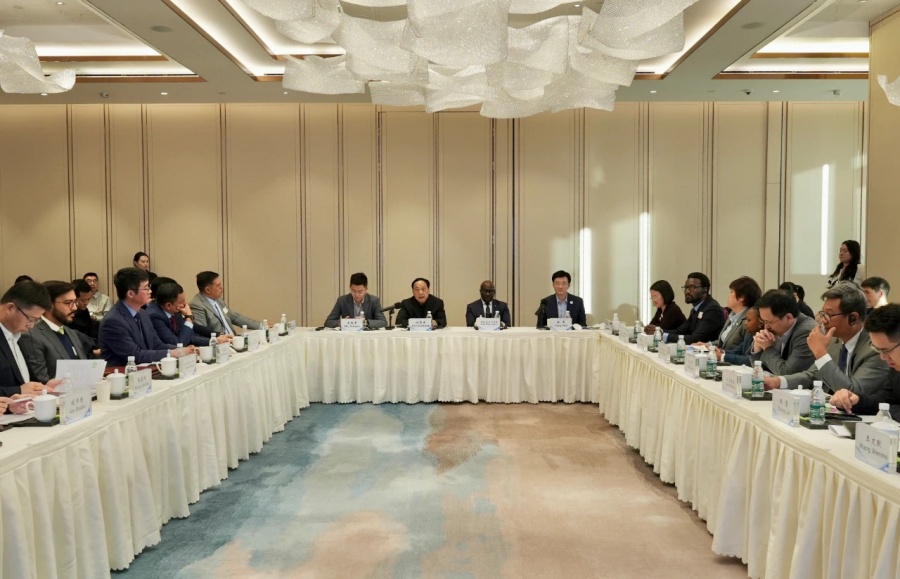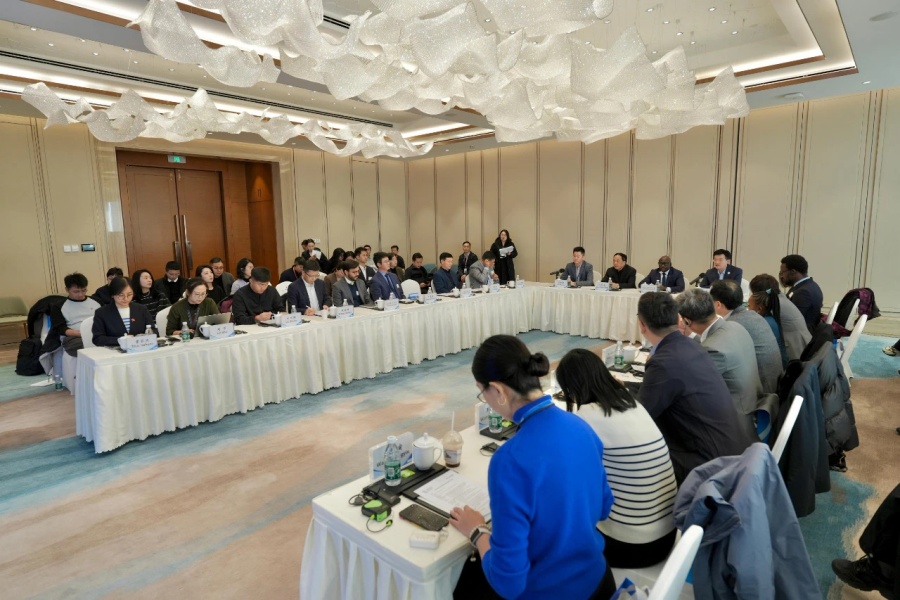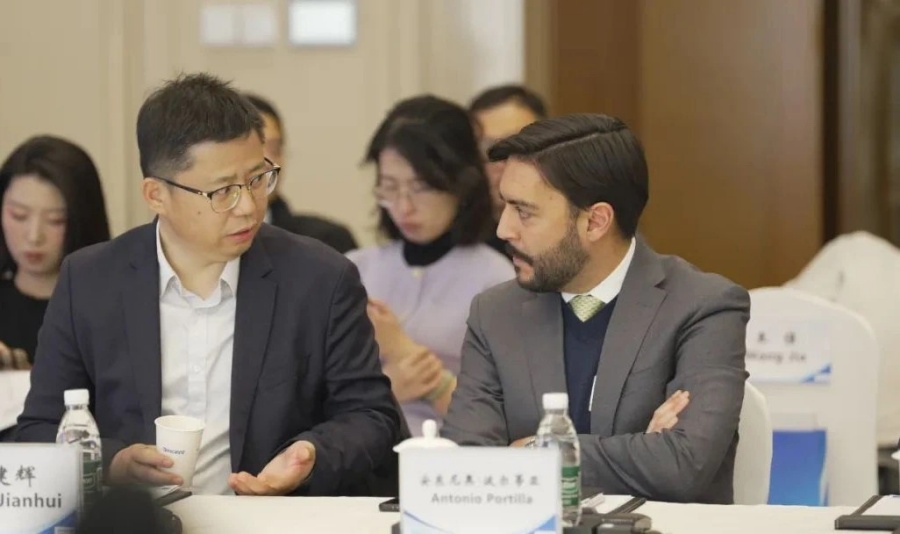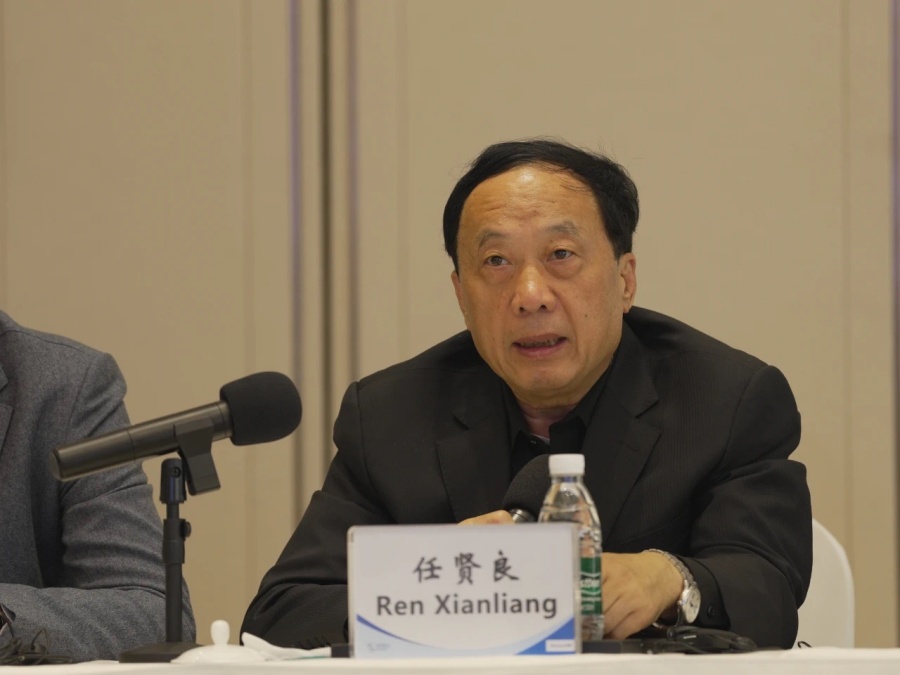
- Home
- Media Center
-
Events
- Wuzhen Summit
- Regional Forums
- Practice Cases of Jointly Building a Community with a Shared Future in Cyberspace
- World Internet Conference Awards for Pioneering Science and Technology
- The Light of Internet Expo
- Straight to Wuzhen Competition
- Global Youth Leadership Program
- WIC Distinguished Contribution Award
- Membership
- Digital Academy
-
Reports
- Collection of cases on Jointly Building a Community with a Shared Future in Cyberspace
- Collection of Shortlisted Achievements of World Internet Conference Awards for Pioneering Science and Technology
- Reports on Artificial Intelligence
- Reports on Cross — Border Ecommerce
- Reports on Data
- Outcomes of Think Tank Cooperation Program
- Series on Sovereignty in Cyberspace Theory and Practice
- Other Achievements
- About WIC
- 中文 | EN

WIC seminar explores Digital Technology in healthcare
Digital technologies are transforming healthcare delivery by expanding access, improving diagnostic accuracy, and enhancing public health outcomes across the globe. These innovations were the central focus of the "Digital Technology Empowering Health for Public Good" seminar during the Journey into Tencent SSV (Sustainable Social Value) event held by the World Internet Conference (WIC) on Jan 7.

The seminar started with a maternal and child health program initiated by Tencent SSV Inclusive Health Lab--Red Umbrella Program, which is employing product-driven diagnostics and digital health platforms to address critical public health challenges. Zhai Jiahuan, the project lead, elaborated on how the Red Umbrella Program uses digital platforms to enable the smooth connection between doctors and patients in low-medical-resource regions.
The benefits of digital technologies for maternal and child health were highlighted by speakers involved in the program. Xu Zongyu, Deputy Director of China’s National Center for Women and Children’s Health, said that the application of digital technologies in the Red Umbrella Program effectively reduced the workload of doctors to a large extent. At the same time, he expected such practices to be replicated and spread over a wider area for the benefit of more people. Xue Jingjie, Secretary General of the China Foundation for Birth Defects, said that the skill level of medical personnel varies from region to region, and the use of digital technology provides screening and diagnostic recommendations for grass-roots doctors, effectively reducing the incidence of misdiagnosis and underdiagnosis.

The international community pays close attention to digital health. Speakers from different countries shared their national experiences and visions. Saffa-Woya Rogers, Sierra Leone’s deputy ambassador to China, described how telemedicine and mobile health platforms have provided access to healthcare in remote areas with limited infrastructure. He said these technologies have been instrumental in providing health education and preventive care to communities that otherwise might not have access to such services. Similarly, Ntsoaki Matela from Lesotho’s embassy in China highlighted the use of mobile health applications in improving maternal health education and providing timely vaccination reminders. By delivering crucial information directly to users’ phones, these apps have empowered women in rural areas to make informed decisions about their own health and that of their children. Antonio Portilla, from the Embassy of Mexico in China, presented Mexico’s latest National Health Plan, which aims to bring medical services to remote communities and fully digitize the healthcare system. He also touched on the role of telemedicine and AI in healthcare, recognizing their potential to transform rural healthcare. Although Mexico is in the early stages of adopting AI, Portilla said he hoped these technologies, along with international collaboration, would help provide equitable healthcare to all communities in Mexico.

Besides, speakers from technology companies demonstrated the potential of digital technologies in different healthcare scenarios. Wu Xian, director of Tencent's YouTu Lab Jarvis Research Center, described how his team is using AI to enable remote fundus screening, and using large models to help intensive care doctors deal with paperwork in medical records. The application of digital technologies in rare disease management was also discussed during the seminar. Gong Mengchun, director of the GMC Lab of Guangdong Medical University, Senior Vice President and Chief Medical Officer of DHC Technologies Co., Ltd. detailed the innovative application of digital technologies for rare disease diagnostics. AI algorithms can process large datasets, identifying patterns that would be difficult for human analysis alone, aiding in faster and more accurate diagnoses.

At the end of the seminar, Ren Xianliang, Secretary General of the World Internet Conference, stressed that integrating digital technologies with health-related public welfare initiatives can help bridge healthcare gaps and promote a more inclusive, equitable and accessible global health ecosystem.
Ren called for global collaboration to adopt a people-centered approach, working together to expand the application of digital technologies in public health scenarios and giving more attention to the health needs of children, women, and the elderly. At the same time, Ren also called on more technology companies and organizations to devote into the global practice of public health care and join hands to prevent risks brought by digital technologies.
As for the future, Ren said that WIC will continue to build bridges for global communication and cooperation through diversified activities, exploring more replicable and scalable models for global digital health practices and making greater contributions to the improvement of human well-being.

The World Internet Conference (WIC) was established as an international organization on July 12, 2022, headquartered in Beijing, China. It was jointly initiated by Global System for Mobile Communication Association (GSMA), National Computer Network Emergency Response Technical Team/Coordination Center of China (CNCERT), China Internet Network Information Center (CNNIC), Alibaba Group, Tencent, and Zhijiang Lab.





